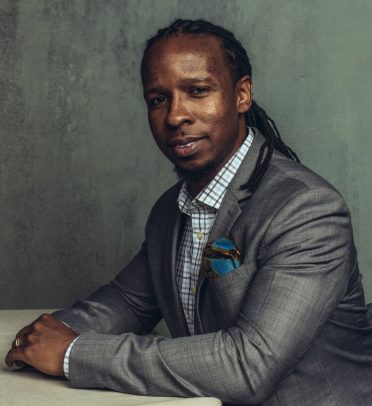MLK keynote highlights importance of antiracist ideas, policies

Staying quiet is not an option, being a non-racist isn’t enough and remaining “colorblind” is ineffective, says Dr. Ibram X. Kendi. Instead, those who stand for equal opportunities and social justice must be antiracist, he says.
“What’s critical for us to realize is that this system of racism was essentially constructed; therefore, it can be deconstructed,” said Kendi, a three-time No. 1 New York Times bestselling author and the Andrew W. Mellon Professor in the Humanities at Boston University.
“It was constructed by policymakers… it was codified and normalized through racist ideas and through racist policies. And I think it’s important for us to know that and see that and identify those and replace them with antiracist policymakers’ policies and ideas.”
UIC welcomed Kendi as its 2021 Dr. Martin Luther King Jr. commemoration speaker Jan. 20. He spoke via Zoom about the importance of seeing disparities, what it means to contribute change to the community, and the importance of integrated and safe places.
“Different groups should be able to nurture their spaces because that is where their livelihood emerged from,” said Kendi, founding director of the Boston University Center for Antiracist Research and CBS News racial justice contributor. “There has to be this sort of mutual respect for spaces and resources. That then allows us to enter into different spaces and learn so much and love so much.”
People must have the ability to simultaneously see sameness and differences, as well as appreciate them, Kendi said. People must care about equality and nurture differences between racial groups without advocating for colorblindness, he said.
“If we are not identifying by race, then we won’t be able to collect racial data, and if we cannot collect racial data, then we’re not going to be able to see racial disparities,” he said. “If racial disparities are not collected, then we can’t see racist policies and practices. So, then, how are we ever going to eliminate them?”
People can take action every day by pointing out these inequalities, he said. Universities also can participate by researching not only to inform more research but also by informing policy and empowering change.
“It’s not easy to do or easy to achieve, but it’s possible, and I want people to take advantage of that,” he said.
UIC Chancellor Michael Amiridis welcomed guests to Kendi’s talk, highlighting a 1965 speech where Dr. Martin Luther King Jr. told the crowd that “the time is always right to do what is right.”
“Fifty-five years later, we’re still working to do what is right in addressing educational disparities among our students, as well as partnering with our underserved communities to ensure that they have a pathway to economic security through education,” he said. “Their struggle to achieve their goals must be our struggle.”
“Every day UIC students and alumni, faculty and staff make significant contributions to social justice in our communities, in organizations, places of worship, and our own classrooms. But as the events of 2020 have clearly demonstrated, we still have a long way to go.”
UIC also has selected Kendi’s book, “How to Be an Antiracist,” for its MLK Book Club 2021, which will meet virtually in February through April.
Categories
